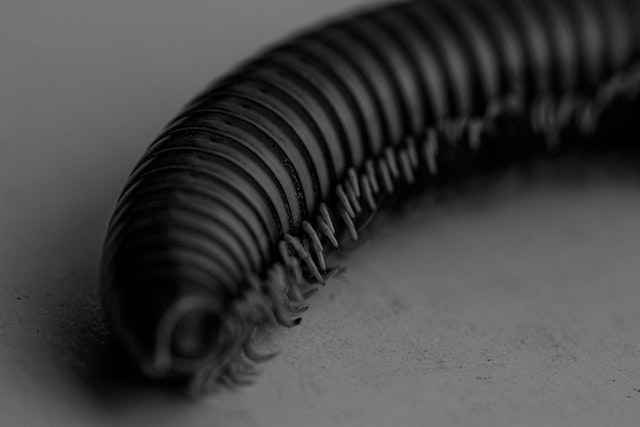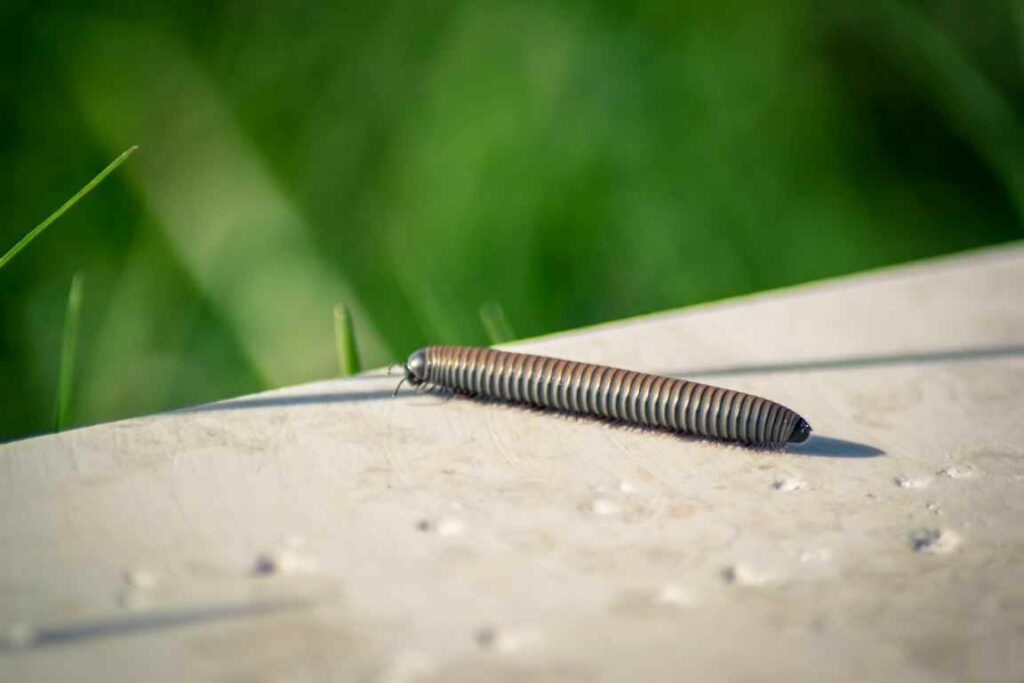Centipedes are attracted to bathrooms for several reasons:
- Moist environments: Centipedes require a constant external source of water to survive, and bathrooms provide many sources of moisture, such as condensation from hot baths or showers, splashed water, and residual water in bathtubs, showers, and bathroom basins.
- Shelter from harsh weather: Centipedes cannot survive in very cold or hot conditions, so they move indoors to avoid extreme temperatures.
- Food source: Centipedes feast on common household bugs like spiders and cockroaches, which can also be found in bathrooms.
Centipedes can enter your bathroom through various means, such as crawling up drain pipes, hitching a ride on items brought in from outside, or entering through open windows.
How Can I Reduce Moisture In My Bathroom To Deter Centipedes?
To reduce moisture in your bathroom and deter centipedes, you can take the following steps:
- Repair any water leaks and use a dehumidifier to keep humidity levels down
- Run exhaust fans in the bathroom to help eliminate excess moisture
- Clean damp areas of your bathroom, such as drains, and remove any hiding places for centipedes
- Remove clutter and clear out any bathroom plants or baskets that may be damp
- Fix leaking taps and lift any damp bathroom carpets
- Use sticky trap tape to stop centipedes from crawling in through your bathroom windows
- Use natural deterrents such as cayenne pepper
Are There Any Specific Bathroom Fixtures Or Areas Where Centipedes Are More Likely To Hide?

Centipedes are attracted to damp and dark areas, so they are more likely to hide in moist locations such as bathrooms, basements, and kitchens.
They can hide under protective areas such as stones, leaves, and logs outside, and in the home, they can hide in crawl spaces, piles of wet towels, and hard-to-reach areas in the attic.
To prevent centipedes from hiding in the bathroom, it is recommended to eliminate any source of moisture, fix any leaks or cracks, use a dehumidifier, and take measures to stop condensation from forming.
Additionally, clearing out any bathroom plants or baskets that may be damp and using sticky trap tape to stop centipedes from crawling in through bathroom windows can also help.
What Are Some Natural Methods Or Products I Can Use To Keep Centipedes Out Of My Bathroom?
There are several natural methods and products that can be used to keep centipedes out of the bathroom.
These include:
- Manual removal using gloves
- Setting up DIY centipede traps
- Using diatomaceous earth or boric acid
- Running a dehumidifier to remove moisture from the bathroom
- Sealing up entry points to the bathroom
- Using sticky traps or insect catchers
- Spraying a mixture of soap and water
- Using essential oils or cedar oil
- Creating a vinegar spray
- Removing leaf litter, mulch, and other organic material around the house to reduce harborage locations of the insects that the centipedes feed upon
Can Centipedes Be Harmful Or Dangerous If They Are Present In The Bathroom?
Centipedes are generally not harmful or dangerous to humans, but their presence in the bathroom can be a nuisance.
Centipedes are attracted to moisture, and bathrooms provide many sources of moisture, making them a common place to find centipedes.
Most centipede bites are not serious, but they may cause some pain, swelling, and numbness.
Centipedes are beneficial because they eat other arthropod insects, which can help control insect populations.
To get rid of centipedes in the bathroom, one can clean drains regularly, declutter the space under sinks, and monitor humidity to make the area less welcoming to centipedes.
If I Find A Centipede In My Bathroom, Does It Indicate A Larger Infestation Elsewhere In My Home?
Finding a centipede in your bathroom does not necessarily indicate a larger infestation elsewhere in your home.
Centipedes are common household pests that seek out moist environments and a solid food source, such as other bugs, in the comforts of your home.
They are not dangerous to humans and do not typically harm infrastructure.
While it is possible that there may be other critters around if you find centipedes in your home, seeing one does not necessarily mean there is a larger infestation.
However, if you are concerned about a pest infestation, it is recommended to contact a local exterminator for expert solutions to your unique situation.







